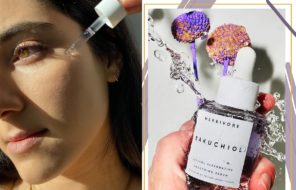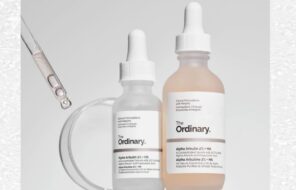When you’ve tried several store-bought acne formulas, but you’re still breaking out, you might consider a different route: at-home acne treatments. According to research and experts, these at-home treatments, which contain natural remedies like aloe vera gel and tea tree oil, are helpful acne-fighting remedies that can help you achieve clearer skin.
This article introduces you to natural skincare remedies that can calm your acne and improve your skin. Read on to learn the causes of acne, the efficacy of at-home treatments, and a few remedies worth trying.
What causes acne?
Acne is an inflammatory skin condition affecting nearly 50 million Americans yearly. It clogs your pores, produces pus-filled bumps (or cystic lesions) that disrupt your skin’s smoothness, and triggers breakouts each time your skin has an inflammation episode.
We spoke with Dermatologist Anna Chacon, MD, who informed us that acne is caused by hormones, stress, or certain foods.
Fortunately, effective dermal treatments can help keep acne under control. Natural skincare remedies in particular can help counteract the spread of acne.
How effective are at-home acne treatments?
According to Dr. Chacon, “At-home acne treatments are safe and effective when used correctly and consistently.” Choosing treatments based on your skin type and condition is key. For example, those with sensitive skin must be wary of side effects, such as irritation or dryness.
“If you have hormonal acne caused by birth control pills or pregnancy, then over-the-counter topical treatments [won’t be helpful], as they don’t treat hormonal flare-ups,” Chacon said.
At-Home Acne Treatments Worth Exploring
Three popular DIY acne remedies swirling the internet are aloe vera, green tea, and tea tree oil. You’ll likely see at-home, natural, or similar words associated with these remedies. In terms of efficacy, here’s what Chacon had to say:
“Some limited research supports the home treatments suggested in this article as the most effective, natural approaches to [minimizing] acne,” she said. “Applying essential oils, green tea, and aloe vera to the skin appears to be the quickest way to get rid of pimples … The remedies [below] may not work for everyone, but they may be worth a try.”
Aloe vera
A centuries-old household staple, beauty consumers can’t deny aloe vera gel as a skincare favorite. The succulent plant has several uses, from maintaining good oral hygiene to healing rashes and burns. As a topical skincare agent, people commonly use the gel-like substance to treat wounds or relieve acne inflammation. Its other potential benefits include fine line and wrinkle reduction and added protection from UV radiation damage. Aloe vera gel is ideal for nonsensitive skin, as use may result in burning, redness, and stinging for sensitive individuals.
Green tea
Green tea extract can significantly benefit acne-prone skin. This second household staple has plenty more to offer than just quenching thirst. With natural anti-inflammatory properties, green tea extract can reduce non-inflammatory acne lesions.
Experimental studies involving the use of topical green tea extract have demonstrated visible reductions in inflammatory acne lesions. Overall, scientific research suggests that using topical green tea extract for acne can lead to favorable outcomes with minimal side effects.
Tea Tree Oil
You’ll likely find this well-known essential oil in various beauty and cosmetic products. We’re not surprised, as tea tree oil has antiseptic and antibacterial properties — both of which are crucial for fighting acne.
Its terpinen-4-ol content further amplifies the oil’s anti-inflammatory and antimicrobial benefits, proving tea tree oil’s effectiveness in attacking bacterial, viral, and other nasty skin infections. The bottom line with this essential oil is that it can effectively treat mild to moderate acne.
Switch Up Your Routine
Most store-bought acne products are hit or miss — they’re either practical acne-correcting solutions or a waste of money. When you’ve tried them all and are fresh out of options, at-home acne treatments might be able to save the day. Natural acne remedies like aloe vera gel, green tea, and tea tree oil have inflammation-reducing properties. It’s no wonder why they’ve all grown in popularity as suitable acne-fighting alternatives.
Unless your acne gets out of hand and it becomes necessary to see a dermatologist, at-home treatments are worth a try if you have mild to moderate acne.





